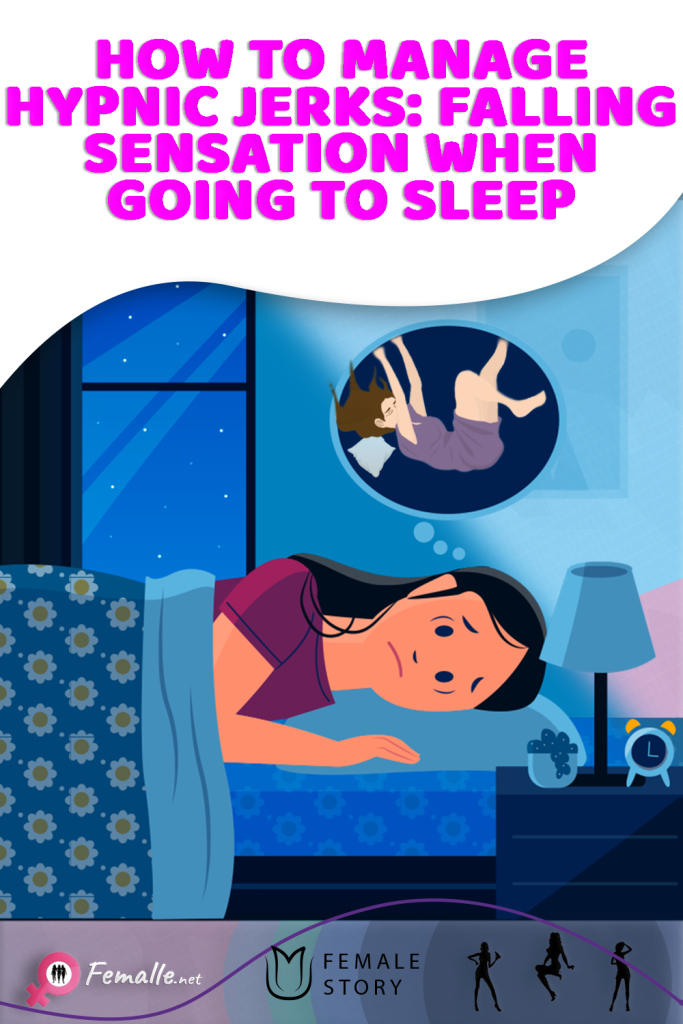How to Manage Hypnic Jerks: Falling Sensation When Going to Sleep
Our bodies are very interesting things. They can actually inform us when something is not right. Do you ever experience sudden muscle twitches or jerks when falling asleep? These involuntary movements are known as hypnic jerks, and they can be quite startling. We will explore what hypnic jerks are, what causes them, and how you can manage them.
What are Hypnic Jerks twitching in sleep?
Hypnic jerks, also known as sleep starts or night starts, are involuntary muscle twitches that occur when a person is falling asleep. They often feel like a sudden jolt or falling sensation, causing the body to jerk and wake up momentarily. Hypnic jerks are a common experience, and up to 70% of people may experience them at some point in their lives.
What Causes Hypnic Jerks why do i twitch when falling asleep?
The exact cause of hypnic jerks is not fully understood, but there are several theories. One theory suggests that they are a result of the body’s natural transition from wakefulness to sleep. As the body relaxes, the brain may misinterpret this relaxation as a sign that the body is falling and send a signal to the muscles to react. This sudden muscle contraction can cause the body to jerk, leading to the falling sensation.

Another theory suggests that hypnic jerks may be caused by external factors, such as stress or anxiety. When the body is under stress, the brain may become hyperactive, causing it to misinterpret the body’s natural relaxation as a sign of danger. This can trigger the muscles to contract suddenly, leading to hypnic jerks.
Some research has also suggested that hypnic jerks may be linked to certain lifestyle factors, such as caffeine consumption or irregular sleep patterns. Caffeine is a stimulant that can interfere with the body’s natural sleep-wake cycle, making it more difficult to fall asleep and increasing the likelihood of hypnic jerks. Irregular sleep patterns, such as staying up late or sleeping in on the weekends, can also disrupt the body’s natural sleep cycle and increase the likelihood of hypnic jerks.
Managing Hypnic Jerks
While hypnic jerks are generally harmless, they can be disruptive to sleep and cause anxiety or stress. Fortunately, there are several strategies that can help manage hypnic jerks and improve sleep quality.
- Practice Good Sleep Hygiene
Maintaining good sleep hygiene can help reduce the likelihood of hypnic jerks. This includes establishing a regular sleep schedule, avoiding caffeine and other stimulants before bed, and creating a comfortable sleep environment.
- Reduce Stress and Anxiety
Stress and anxiety can increase the likelihood of hypnic jerks. Engaging in relaxation techniques, such as deep breathing, meditation, or yoga, can help reduce stress and promote relaxation before bed.
- Avoid Strenuous Exercise Before Bed
Strenuous exercise can stimulate the body and increase the likelihood of hypnic jerks. It is best to avoid intense exercise at least two hours before bed to give the body time to relax.
- Consider Natural Remedies
Some natural remedies, such as valerian root or chamomile tea, may help promote relaxation and reduce the likelihood of hypnic jerks. However, it is important to talk to a healthcare provider before using any natural remedies, as they may interact with other medications or have side effects.
- Consult with a Healthcare Provider
If hypnic jerks are causing significant disruption to sleep or are accompanied by other symptoms, such as daytime fatigue or restless leg syndrome, it may be helpful to consult with a healthcare provider. They can help identify any underlying conditions that may be contributing to hypnic jerks and recommend appropriate treatment.
Hypnic jerks are a common experience and are generally harmless. While the exact cause of hypnic jerks is not fully understood, it is believed that they may be linked to the body’s natural transition from wakefulness to sleep or external factors such as stress or caffeine consumption.
While hypnic jerks are generally harmless, they can be disruptive to sleep and cause anxiety or stress. Fortunately, there are several strategies that can help manage hypnic jerks and improve sleep quality.
By practicing good sleep hygiene, reducing stress and anxiety, avoiding strenuous exercise before bed, considering natural remedies, and consulting with a healthcare provider if necessary, you can reduce the likelihood of hypnic jerks and improve your overall sleep quality.
Hypnic jerks are a common experience that many people may encounter at some point in their lives. By understanding what they are and what causes them, you can take steps to manage them and improve your sleep quality. If hypnic jerks are causing significant disruption to your sleep or are accompanied by other symptoms, it may be helpful to consult with a healthcare provider to identify any underlying conditions and recommend appropriate treatment.
Originally posted 2018-06-17 05:20:43.



What is happening is that Soul or the human spirit is just about the leave the body. And some close or distant sound or noise (could be a passing car horn) interferes with this separation and the body jerks; just when spirit is about to to separate from the body it (the spirit) quickly comes back to the body. This is what causes the ‘twith.’